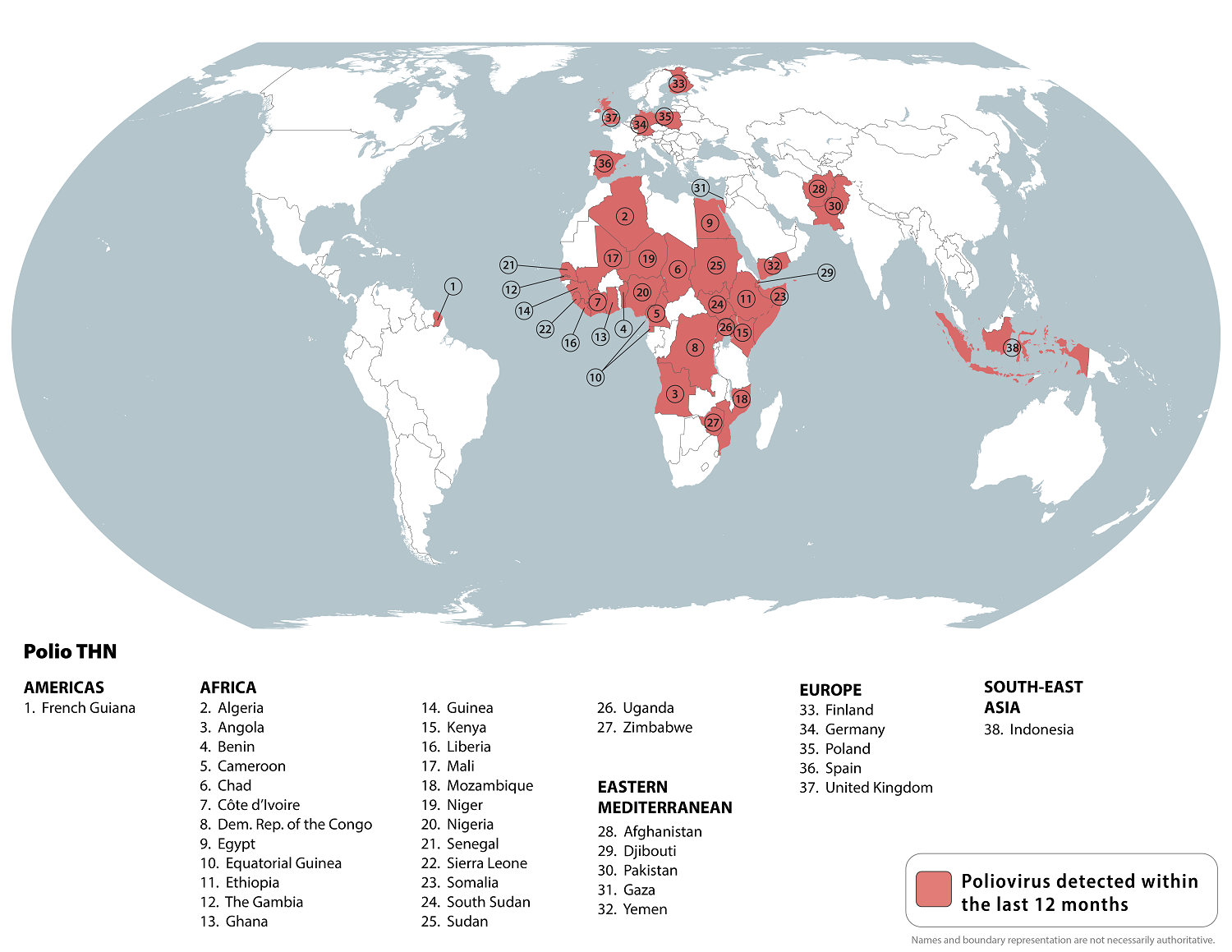Global Polio
Key points
- Some international destinations have circulating poliovirus (listed below and shown in map).
- Before any international travel, make sure you are up to date on your polio vaccines.
- Before travel to any destination listed below, adults who previously completed the full, routine polio vaccine series may receive a single, lifetime booster dose of polio vaccine.

Polio is a crippling and potentially deadly disease that affects the nervous system. Good hand washing practices can help prevent the spread of this disease. Because the virus that causes polio lives in the feces (poop) of an infected person, people infected with the disease can spread it to others when they do not wash their hands well after defecating (pooping). People can also be infected if they drink water or eat food contaminated with infected feces.
Most people with polio do not feel sick. Some people have only minor symptoms, such as fever, tiredness, nausea, headache, nasal congestion, sore throat, cough, stiffness in the neck and back, and pain in the arms and legs. In rare cases, polio infection causes permanent loss of muscle function (paralysis). Polio can be fatal if the muscles used for breathing are paralyzed or if there is an infection of the brain.
What is the current situation?
The following destinations have circulating poliovirus (see map):
- Afghanistan
- Algeria
- Angola
- Benin
- Burkina Faso
- Cameroon
- Central African Republic
- Chad
- Côte d'Ivoire
- Democratic Republic of the Congo
- Djibouti
- Egypt
- Ethiopia
- Finland
- French Guiana
- Gaza
- Germany
- Ghana
- Guinea
- Indonesia
- Israel
- Kenya
- Liberia
- Niger
- Nigeria
- Pakistan
- Papua New Guinea
- Poland
- Senegal
- Sierra Leone
- Somalia
- South Sudan
- Spain
- Sudan
- Tanzania
- Uganda
- United Kingdom
- Yemen
- Zimbabwe
What can travelers do to prevent polio?
Get the polio vaccine
Children and adults should be up to date on their routine polio vaccines.
Adult travelers may get an inactivated polio vaccine booster if they:
- are going to a destination that has circulating poliovirus;
- have completed their routine polio vaccine series; and
- have not already received one adult booster dose.
Clinician Information
Ensure that anyone unvaccinated or incompletely vaccinated completes the routine polio vaccine series before international travel.
Additional Information
- Poliomyelitis in Epidemiology and Prevention of Vaccine-Preventable Diseases — The Pink Book
- Polio Vaccination: Information for Healthcare Professionals
- CDC Yellow Book: Poliomyelitis
Traveler Information
- Polio Vaccination for International Travelers
- About Polio
- CDC Travelers’ Health: Choose Safe Food and Drinks When Traveling
- Polio Vaccine Information Statement